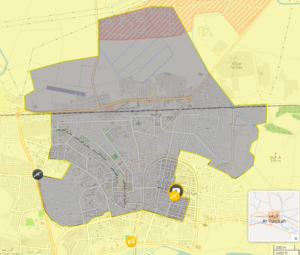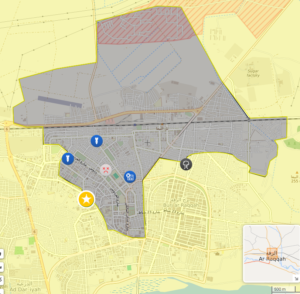With Hillary Clinton’s forthcoming book on why she lost the 2016 President election, How I F*ck*ed Up Deplorables 1 Me 0 Who Knew Wisconsin Was a State? What Happened (Amazon link provided for those who have a crying professional need to buy the book or an unquenchable thirst for schadenfreude, because let’s face it: that thing has “massive stacks of remainder copies” written all over it) in the news, I guess it’s high time to do another Clinton Corruption update. Once again we ask the eternal question: How can we miss you if you won’t go away?
Though there is this: “Clinton: ‘I Am Done With Being a Candidate.” From your lips to God’s ear…
We found out that as secretary of state, Mrs. Clinton had not gone through the classified email training that was required by presidential executive order, and by federal law We asked for the records of the training. The State Department gave us a “no records” response. So, that’s yet another area of the law where Mrs. Clinton didn’t have to follow the rules.
But let’s get back to the emails themselves. We found a nearly five-month total gap in Mrs. Clinton’s emails. And keep in mind: these are in the emails she decided to turn over. We also found that one key State Department official did not want a written record of issues about the Clinton emails. There’s an email talking about keeping this Clinton email discussion “offline” because this Freedom of Information Act official knew that the emails would be subject to disclosure under the Act.
And now, let’s talk about the so-called personal emails versus government emails: If Mrs. Clinton had been at the State Department and was doing things right, she could have set up a lunch date with her daughter and then deleted the email. But, once she decided to leave government, she could not take any of those existing emails with her. Yet, that is what she did. All of those emails are the government’s property. And, that’s the issue right now.
Snip.
The purpose of the private email server was to destroy history. Hillary Clinton wanted to hide, delete, evade, and prevent the disclosure of official government activity. The way she did it and the people who did it with her, who lied to federal courts about whether or not they had information, is a crime. There were crimes committed in front of Judge Sullivan in the form of false statements, and, ultimately, that will be part of the criminal case that the Justice Department has to review.
If you still want to know the EmailGate skinny, it’s worth reading the whole thing.
Former Hillary Clinton aide Huma Abedin used her personal email account to transmit classified documents and coordinate favors for Clinton donors, according to emails obtained by Judicial Watch Wednesday.
Judicial Watch obtained the documents as part of a lawsuit filed after the State Department failed to respond to a March 2015 Freedom of Information Act (FOIA) request. The newly-obtained documents include 91 Clinton email exchanges that were not turned over to the State Department, contradicting Clinton’s claim that, “as far as she knew,” she had turned over all of her government emails.
The emails reveal multiple instances in which Abedin used her personal account to send and receive classified documents as well as arrange personal favors for Clinton donors and political allies on former Secretary of State Hillary Clinton’s behalf.
Snip.
In one particularly blatant example of nefarious activity, Miguel Lausell, a Puerto Rican Telecom executive and donor of over $1 million to the Clinton Library, requested through Clinton Foundation executive Doug Band that a specific candidate be considered for the U.S. ambassadorship to the Dominican Republic. The following day in April 2009, a Clinton aide passed Lausell’s message to Clinton’s special assistants and instructed them to “make sure there is a response.” It remains unclear whether the person in question received the ambassadorship as the name is redacted.
In a similar example of preferential treatment toward Clinton donors, the managing director of left wing fundraising organization Democracy Alliance, Kelly Craighead, emailed Abedin asking her to “reach out” to an “extremely loyal supporter” who was awaiting a response regarding an application for a senior position at the Department of State.

uhhhhhh holy shit pic.twitter.com/OPo9mrYqt3
— kate reads books (@katereadsbks) September 12, 2017
Verily, only St. Hillary of the Pantsuits may offer absolution to the sinners, for She is the Way and the Light…





